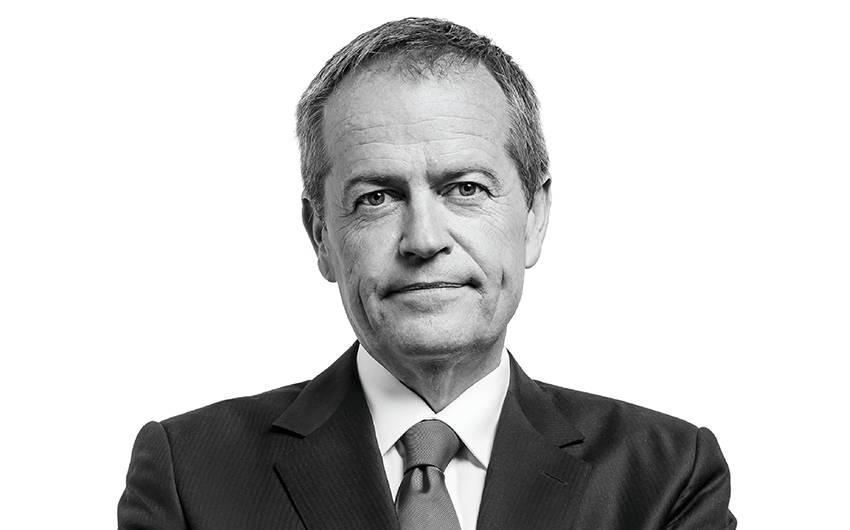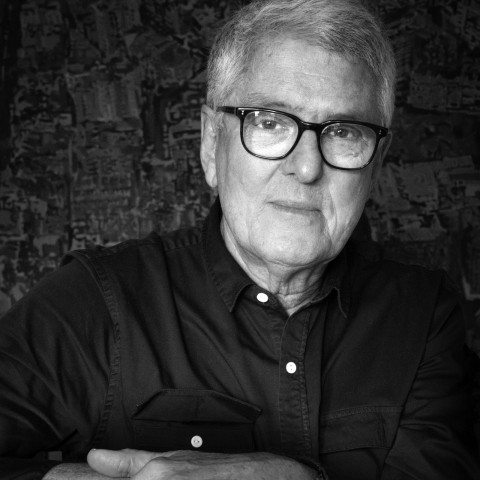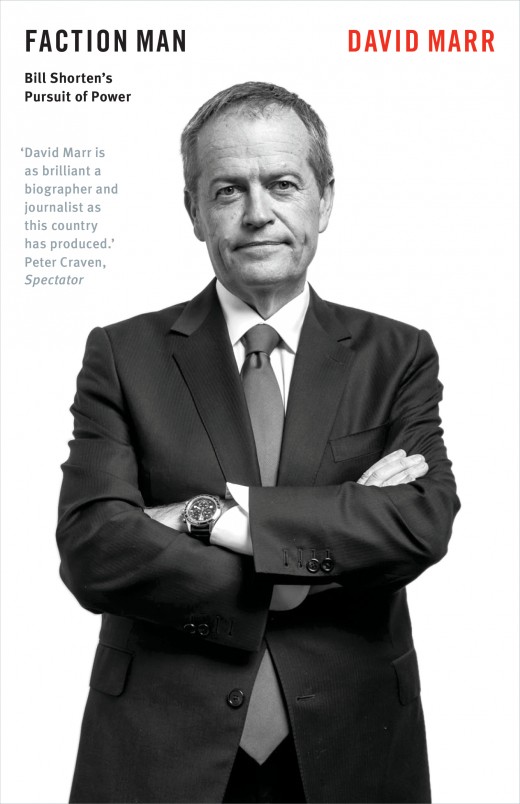News

News > Extract
Read an extract from Faction Man: Bill Shorten's Pursuit of Power by David Marr
“I’m stuffed, aren’t I?” Bill Shorten asked the night they toppled Tony Abbott. The Liberals had dragged their battered prime minister from the ring. The new man was dancing. The crowd was roaring with delight.
The Numbers: 14 September 2015
“I’m stuffed, aren’t I?” Bill Shorten asked the night they toppled Tony Abbott. The Liberals had dragged their battered prime minister from the ring. The new man was dancing. The crowd was roaring with delight. In the shadow of Malcolm Turnbull’s victory, Shorten cut the sort of figure Abbott had in office: one who seems not quite made for today’s Australia. The deposed leader carried with him a whiff of the Cold War and Catholic hellfire, Shorten of the dying world of trade unions. As Turnbull bestrode Canberra in the spring of 2015 revelling in his power, he presented the face of a modern man ready to lead a modern country. He seemed to offer Australia a fresh start. It hasn’t quite turned out that way. The Saturday Paper’s Paul Bongiorno reported Shorten’s despairing question that first night and the response of an old political friend: “Yes, mate, if it’s a contest between you and him. But if it becomes a fight between Malcolm, his own party and the Nationals, then you might be in with a chance.”
Shorten was shaken. The polls in the first months of the new regime were humiliating. But he plugged on. The determination of this man should not be underestimated. Nor his daring. He broke the rules by announcing fresh policies without an election anywhere in sight. The factions were quiet. At his lowest last summer, his leadership came under pressure but his rivals never broke cover. As dinosaurs began crashing about in the Coalition undergrowth, Shorten stole from Turnbull the mantle of the modern leader. In the new year he turned the polls around, a feat that earned him, even from the conservative commentariat, a measure of professional respect he’d never enjoyed before. He is still not the man Australians would prefer to be sitting in the Lodge, but by April he had the Labor Party once again nosing ahead of the Coalition in the polls. As the nation waited for Turnbull’s first budget, it was acknowledged across politics that a victory by Shorten is not impossible. He is a contender.
Yet even now there’s a sense that this is a man from nowhere. Turnbull has lived several lives in the welcome glare of publicity. Shorten has lived only one, much of it out of sight, as he climbed from rookie union organiser to leader of the Opposition. That took only twenty years. He has always moved fast. But his time at the head of one of the country’s biggest unions tends to be dismissed as a job he did while waiting to get into parliament. His time as a minister is hardly remembered. He still has a faint halo from the Beaconsfield mining disaster, but he is also the plotter who brought down two leaders to clear his way to power. The sight of Shorten on his phone outside a Chinese restaurant the night of Rudd’s downfall in 2010 remains one of the most potent images of the man. He stepped up after Labor’s terrible defeat in 2013 without hesitation and to little applause. He was widely seen as the wrong man for the job. He wasn’t expected to last. But the polls turned in his party’s favour. Up against an unlikely prime minister, Shorten was proving an unlikely winner. Despite the nation’s vivid memories of the chaos of the Rudd and Gillard governments, Newspoll, Essential and Ipsos showed, month after month, that Labor under Bill Shorten would be welcomed back with open arms.
By the time the party gathered in Melbourne for its national conference in 2014, Shorten was coming into focus. Mobs gathered on the floor of the auditorium. Emissaries went back and forth. Lone figures hung on their phones. Up on the platform, delegates from the boondocks poured their hearts out about aged care and the latest plan to defeat branch stacking. No one was listening. The real interest in the vast, spring-green Melbourne Convention and Exhibition Centre was not in the fate of equal marriage, or Labor’s new brutality towards refugees, but whether Shorten was in control. Pundits predicting his humiliation at the hands of the Left were proved wrong, indeed ridiculous, that weekend. He emerged with a near-perfect score having done what he’s done so skilfully since he put on long pants: gather the numbers. Shorten is a master of the art of negotiation, a deal-maker of immense skill. He betrays without flinching. He is hands-on. He calls on his contacts deep in the party. He believes this gives him a better understanding of Labor’s thinking than any of its recent party leaders have had. He is not another Bob Hawke sitting above the fray, relying on his lieutenants to bring him the numbers. “Bill is different,” says his old mentor Bill Kelty. “He hasn’t resigned the factions.”
God knows what debts he incurred in those few days in Melbourne: a seat or two for union officials in some state upper house; a place on a trade mission to China; a handful of jobs safeguarded in the suburbs; and out on the fringe of one of the nation’s capital cities, someone’s daughter to be elected deputy mayor. That’s how it works, and no one works the system better than Shorten.
The conference never reached the most difficult item on the agenda: party reform. Shorten can only have shared the relief of the old faction warriors that the hours spent wheeling and dealing over Labor’s equal marriage policy meant delegates ran out of time to debate the issue that hangs more than ever over the party: the need to find a new balance between the unions, the machine and the members. Shorten’s career is a product of the great conundrum of Labor: the wretched state of democracy within.
When he spoke, the auditorium listened. The ovations he received were not perfunctory. That weekend, his authority was showcased to the nation. But Shorten doesn’t quicken the pulse. Nor does he cut a striking figure. Suits don’t hang well on him. At factory gates in the old days he delivered great stump speeches in a uniform of chambray shirts and bomber jackets. There’s something about the formal dress of the Opposition leader today that suggests a plugger heading for court. He has the great political asset of a big, easy smile. He is learning to look serious without seeming ridiculous. Time and Canberra have taken their toll. In nearly ten years since he came to parliament, he has aged about twenty. In the Ruddslide of ’07 he cut a boyish figure. Now there is more head, less hair and not so much of the charm that once swept men and women off their feet. The accent is just right: educated and classless, part Xavier College and part Australian Workers Union. It’s a serviceable political package but the question is: can he take his party to victory?
Shorten is grappling with an unfamiliar challenge. Each step of the way on his path to power has been won by deals and faction plays. He’s as tough a backroom fighter as federal politics has turned up in a long time. A Shorten specialty is a brutal contest out of sight that hands him a public victory “unopposed.” He was the first leader of the Labor Party to win his position in a vote of the rank and file. But that was not an open contest: eighty-six members of caucus outvoted 30,000 members of the party to put him where he is today. But the time of deals is past. An ex-union official and a former merchant banker face the nation in an open contest. Their policies matter and so do their careers and character. Australians are shrewd judges of political character. They want to know who these men are and they bring that judgment to the ballot box.
Share this post
About the author
David Marr’s books include Patrick White: A Life, The High Price of Heaven, Dark Victory (with Marian Wilkinson), Panic, My Country, Killing for Country and six Quarterly Essays. He has written for The Sydney Morning Herald, The Age, The Saturday Paper, The Monthly and The Guardian and been a reporter for Four Corners and presenter of Media Watch and Late Night Live.
More about David Marr




